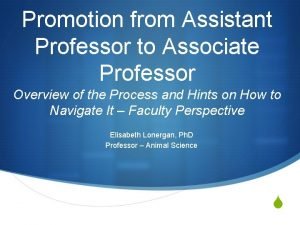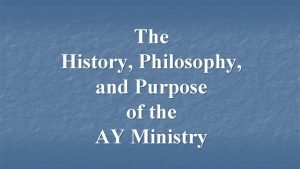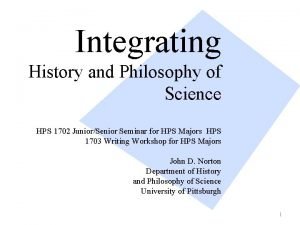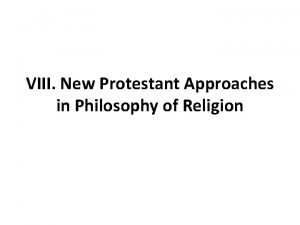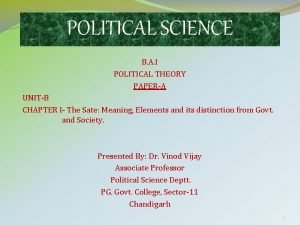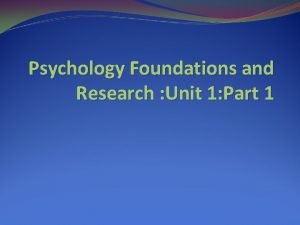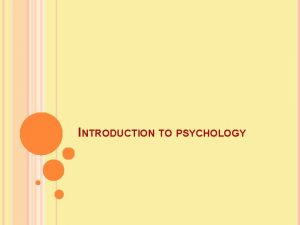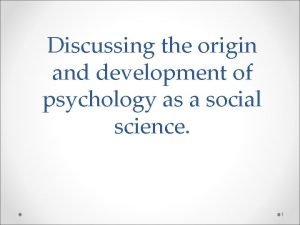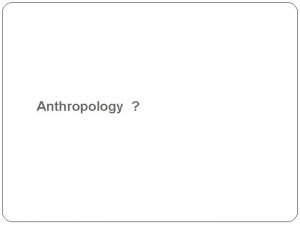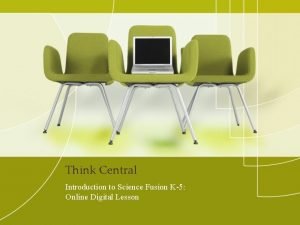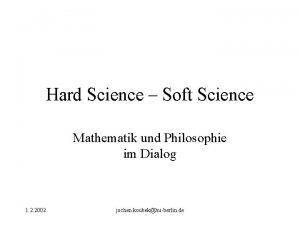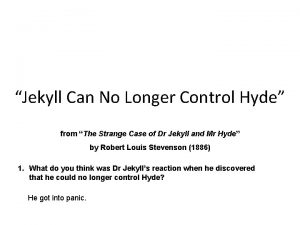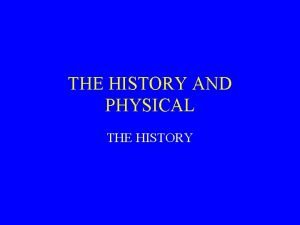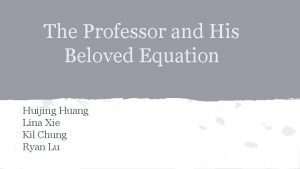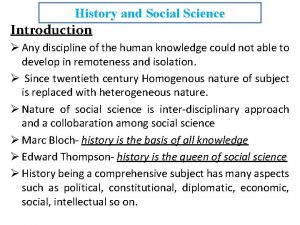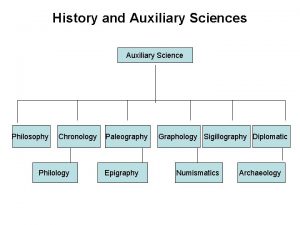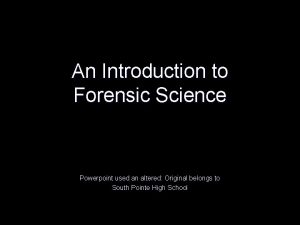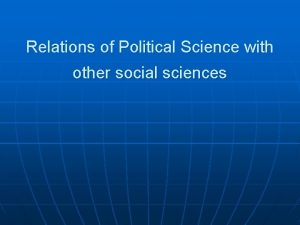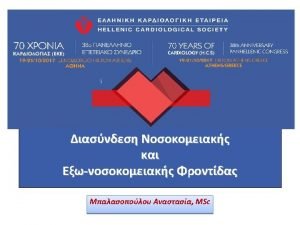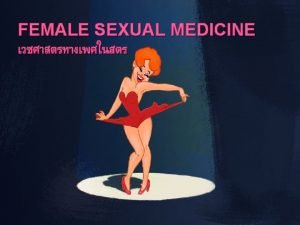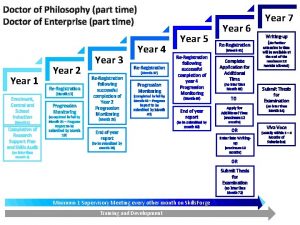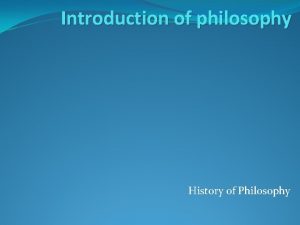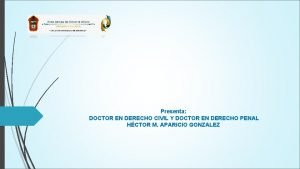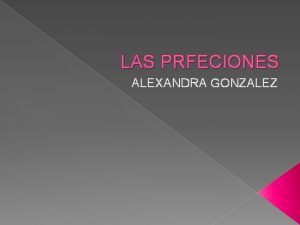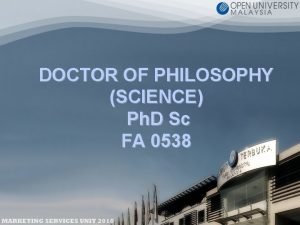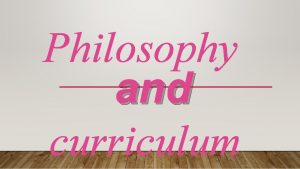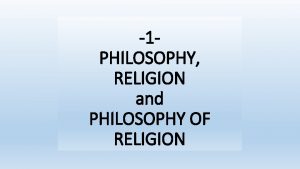History and Philosophy Science Professor doctor of Philosophy























- Slides: 23

History and Philosophy Science Professor, doctor of Philosophy, Olga Loyko E-mail: olgaloyko 780@gmail. com

Lection 2 • Methods of scientific knowledge

Methods of scientific knowledge • General methods of scientific knowledge • Francis Bacon. New Method • B. Pascal in the development of the philosophy of science •

General methods of scientific knowledge are usually divided into two large groups: • Methods of empirical research • Methods used both on the empirical and theoretical level of research.

Observation is the active acquisition information from primary source • In living beings, observation employs the senses

Comparison or comparing • the act of evaluating two or more things by determining the relevant characteristics of each thing to be compared, and then determining which characteristics of each are similar to the other, which are different, and to what degree).

• What do you think of these comparisons?

Measurement • Measurement is the assignment of a number to a characteristic of an object or event, which can be compared with other objects or events

• Jorge Eduardo Hirsch (born 1953) is an Argentina America. He is known for inventing the h-index in 2005, an index for quantifying a scientist's publication productivity and the basis of several scholar indices

Methods used both on the empirical and theoretical level of research. (Abstraction) • Methods used both on the empirical and theoretical level of research abstraction. Abstraction in its main sense is a conceptual process where general rules and concepts are derived, analysis and synthesis, induction and deduction, modeling.

Abstraction • It is an abstract bird, a symbol of a bird in general. • It is abstractions that help us understand the world.

Baconian method • This is the basis of observing facts as a means of studying and understanding natural phenomena.

Francis Bacon Famous Philosopher Bacon essentially proposed the Modern • Scientific Method in his book «Novum Organum» •

Francis Bacon Famous Philosopher (1561 – 1626) • The phrase "scientia potentia est" (or "scientia est potentia" or also "scientia potestas est") is a Latin aphorism meaning "knowledge is power". It is commonly attributed to Francis Bacon, although there is no known occurrence of this precise phrase in Bacon's English or Latin writings.


• • Bacon essentially proposed the Modern Method in his book Novum Organum. New Instrument that to interpret nature one should proceed through inductive reasoning. One should proceed from fact to axiom and then on to physical law.

• The process of knowledge is complicated and contradictory. Bacon calls the main barrier in knowledge. He calls them idols.


Idols of the Tribe • The Idols of the Tribe have their origin in the production of false concepts due to human nature, because the structure of human understanding is like a crooked mirror, which causes distorted reflections.

Idols of the Cave • The Idols of the Cave consist of conceptions or doctrines which are dear to the individual who cherishes them, without possessing any evidence of their truth. These idols are due to the preconditioned system of every individual, comprising education, custom, or accidental or contingent experiences.

Idols of the Market Place • These idols are based on false conceptions which are derived from public human communication. They enter our minds quietly by a combination of words and names, so that it comes to pass that not only does reason govern words, but words react on our understanding

Idols of the Theatre • According to the insight that the world is a stage, the Idols of the Theatre are prejudices stemming from received or traditional philosophical systems. These systems resemble plays in so far as they render fictional worlds, which were never exposed to an experimental check or to a test by experience. The idols of theatre thus have their origin in dogmatic philosophy or in wrong laws of demonstration

In Conclusion. . . We can say that as a philosopher, Francis Bacon has made a huge impact in education, scientific methodology, and is not forgotten for introducing the newly modern era of human understanding. Idols Which Beset Man's Mind by Francis Bacon
 Doctor who google drive
Doctor who google drive Promotion from associate professor to professor
Promotion from associate professor to professor My favourite subject is english because
My favourite subject is english because Doctor who history 101
Doctor who history 101 Ay history
Ay history History and philosophy of environmental education
History and philosophy of environmental education Philosophy of science
Philosophy of science Philosophy of science
Philosophy of science Relationship between political science and sociology
Relationship between political science and sociology Psychology definition
Psychology definition Psychology studies
Psychology studies History and origin of science of psychology slideshare
History and origin of science of psychology slideshare Anthropology vs sociology
Anthropology vs sociology Science fusion think central
Science fusion think central Hard and soft science
Hard and soft science What do the doctor and gentlewoman see lady macbeth doing
What do the doctor and gentlewoman see lady macbeth doing Jeckyl & hyde
Jeckyl & hyde History also history physical
History also history physical The professor's beloved equation
The professor's beloved equation History in social science discipline
History in social science discipline Auxiliary sciences to help in the study of history
Auxiliary sciences to help in the study of history Introduction to forensic science ppt
Introduction to forensic science ppt Relationship of political science with economics
Relationship of political science with economics Leone lattes contribution to forensic science
Leone lattes contribution to forensic science

